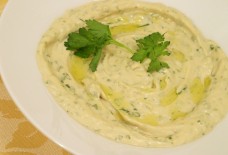On National Doctors' Day, We Honor the Incredible Arab American Doctors Saving Lives
BY: Nisreen Eadeh/Staff Writer
National Doctors’ Day is held on March 30 every year in the US. It is a day to honor and celebrate the compassionate physicians who selflessly serve their country by healing the sick and treating the wounded.
The day was started in 1933 by Eudora Brown Almond, wife of Dr. Charles B. Almond, who observed the occasion by placing flowers and cards on the graves of deceased physicians. In 1990, Congress overwhelmingly passed resolutions to designate March 30 as National Doctors’ Day, and President Bush signed the order, making it public law.
For generations, overwhelming numbers of Arab Americans have joined the medical field to become physicians – a career choice that cannot be appreciated enough. Today, Arab American doctors practice more than 35 different fields of medicine from family practice physicians to oncologists and immunologists. They are breakthrough researchers and innovators, helping Americans overcome preventable diseases and conditions.
Arab American doctors can be found in prominent universities and hospitals, such as Johns Hopkins, the Cleveland Clinic, and of course St. Jude Children’s Research Hospital, which was founded by Arab American actor, Danny Thomas.
In fact, the first hospitals ever built were by Arabs in eighth century Damascus and Baghdad. A century later during the Crusades, the Europeans discovered that Arabs had also built the first pharmacies. Famed Arab and Persian doctors of the medieval era were also the first to write medical books, develop bedside manner, discover the human need for healthy diet and exercise, and begin naming diseases. Their works were translated into Latin and created the foundation for modern-day Western medicine.
They were pioneers of their time, inspiring centuries of Arabs who came after them, including the Arab Americans of today.
Some of the most groundbreaking Arab American doctors throughout US history have been:
- Dr. Michael DeBakey, who was a Lebanese-American cardiovascular surgeon and inventor of the heart pump. He made open-heart surgery possible, and was the first surgeon to successfully implant an artificial heart in a patient. He also helped build the first mobile army surgical hospital and has received dozens of awards for his research, inventions, and ability to teach other doctors.
- Dr. Nawal Nour, who is a Sudanese-American obstetrician/gynecologist. She directs the Ambulatory Obstetrics Practice at the Brigham and Women’s Hospital, and is the only woman in the country treating female African victims of genital mutilation. In 2003, she earned the MacAruther Fellowship, also known as the “Genius Grant”, for her extraordinary dedication to women’s health. She also works to educate other doctors about how to treat women and their conditions.
- Dr. Elias A. Zerhouni, who is an Algerian-American physician, radiologist, and biomedical engineer, was appointed in 2002 by President Bush to be the 15th Director of the National Institutes of Health. He also served in the Obama administration as a science envoy to other nations, where he gave medical advice to leaders. He has worked on the boards of numerous prestigious medical and scientific groups, including the Mayo Clinic and Johns Hopkins School of Medicine. He is one of the most internationally trusted minds in the fields of medicine and science.
- Dr. Mona Hanna-Attisha, who is an Iraqi-American pediatrician, was the key whistleblower in the Flint Water Crisis, which exposed children to dangerous levels of lead contamination. She has received numerous awards for her public health advocacy by medical, environmental, and news organizations. Thousands of Flint residents live healthier lives because of her research and work.
- Dr. Huda Zoghbi, who is a Lebanese-American physician and medical researcher, is credited with clarifying the causes behind of Rett syndrome and spinocerebellar ataxias. She has conducted breakthrough research on Alzheimer’s disease, neuroscience, and neuropsychiatry, earning her numerous prizes in the field. She is one of the nation’s top geneticists and runs her own lab out of Baylor College
Arab American medical associations deserve recognition on National Doctors’ Day, too. Because there are so many Arab American doctors, national and local groups have formed to help them stay connected and advance medicine together.
The National Arab American Medical Association, The Syrian American Medical Society, and the Arab American Physicians Foundation are just a few of the organizations working to bring doctors together, enhance medical knowledge, provide medical relief wherever it’s needed, and offer students opportunities to break into the field.
On National Doctors’ Day, Arab America pays respect to those in the community who dedicate their lives to helping others. With such a hospitable culture, it is no wonder that so many Arab Americans choose to become doctors.









